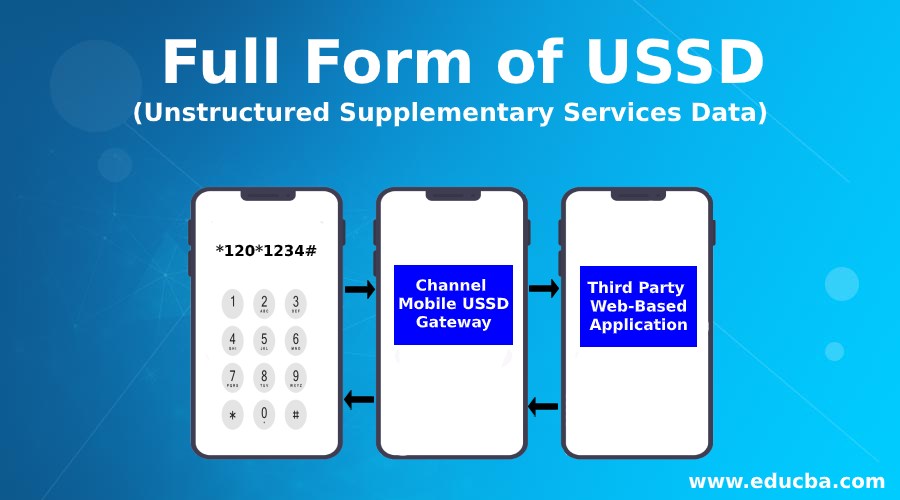Telecom
Kaspersky Detects over 100m Attacks on Smart Devices

Kaspersky honeypots – networks of virtual copies of various internet connected devices and applications – have detected 105 million attacks on IoT devices coming from 276,000 unique IP addresses in the first six months of the year.
This figure is around nine times more than the number found in H1 2018, when only around 12 million attacks were spotted originating from 69,000 IP addresses. Capitalising on weak security of IoT products, cybercriminals are intensifying their attempts to create and monetise IoT botnets. This and other findings are a part of the ‘IoT: a malware story’ report on honeypot activity in H1 2019.
Cyberattacks on IoT devices are booming, as even though more and more people and organisations are purchasing ‘smart’ (network-connected and interactive) devices, such as routers or DVR security cameras, not everybody considers them worth protecting.
Cybercriminals, however, are seeing more and more financial opportunities in exploiting such gadgets. They use networks of infected smart devices to conduct DDoS attacks or as a proxy for other types of malicious actions. To learn more about how such attacks work and how to prevent them, Kaspersky experts set up honeypots – decoy devices used to attract the attention of cybercriminals and analyse their activities.
Based on data analysis collected from honeypots, attacks on IoT devices are usually not sophisticated, but stealth-like, as users might not even notice their devices are being exploited. The malware family behind 39% of attacks – Mirai – is capable of using exploits, meaning that these botnets can slip through old, unpatched vulnerabilities to the device and control it.
Another technique is password brute-forcing, which is the chosen method of the second most widespread malware family in the list – Nyadrop. Nyadrop was seen in 38.57% of attacks and often serves as a Mirai downloader.
This family has been trending as one of the most active threats for a couple of years now. The third most common botnet threatening smart devices – Gafgyt with 2.12% – also uses brute-forcing.
In addition, the researchers were able to locate the regions that became sources of infection most often in H1 2019. These are China, with 30% of all attacks taking place in this country, Brazil saw 19% and this is followed by Egypt (12%). A year ago, in H1 2018 the situation was different, with Brazil leading with 28%, China being second with 14% and Japan following with 11%.
“As people become more and more surrounded by smart devices, we are witnessing how IoT attacks are intensifying. Judging by the enlarged number of attacks and criminals’ persistency, we can say that IoT is a fruitful area for attackers that use even the most primitive methods, like guessing password and login combinations.
This is much easier than most people think: the most common combinations by far are usually “support/support”, followed by “admin/admin”, “default/default”. It’s quite easy to change the default password, so we urge everyone to take this simple step towards securing your smart devices” – said Dan Demeter, security researcher at Kaspersky.
To keep your devices safe, Kaspersky recommends users:
– Install updates for the firmware you use as soon as possible. Once a vulnerability is found, it can be fixed through patches within updates.
– Always change preinstalled passwords. Use complicated passwords that include both capital and lower-case letters, numbers and symbols if it’s possible.
– Reboot a device as soon as you think it’s acting strangely. It might help get rid of existing malware, but this doesn’t reduce the risk of getting another infection.
– Keep access to IoT devices restricted by a local VPN, allowing you to access them from your “home” network, instead of publicly exposing them on the internet.
Kaspersky recommends companies to take the following measures:
– Use threat data feeds (www.Kaspersky.co.za) to block network connections originating from malicious network addresses detected by security researchers.
– Make sure all devices software is up to date. Unpatched devices should be kept in a separate network inaccessible by unauthorised users.
Telecom
9mobile Nigeria Inks Agreement to Roam with MTN

9mobile, Nigerian operator, has reportedly gained approval for roaming on the MTN Nigeria network in a deal that some commentators suggest could improve its position in the market and, more specifically, tempt back lost subscribers.

After finally gaining regulatory approval from the Nigerian Communications Commission (NCC), 9mobile plans to launch national roaming services on the MTN network from this month.
Under the agreement, 9mobile subscribers will gain access to MTN’s infrastructure for calls, texts and data in areas where 9mobile’s coverage is weak or unavailable.
For 9mobile, the deal offers a cost-effective way to expand coverage without the heavy investment required for nationwide infrastructure.
According to ITWeb Africa, the decision comes nearly five years after initial discussions – much longer than expected due, the Techloy news service said, to regulatory bottlenecks, shifting market conditions, and unclear execution timelines.
It may, however, prove pivotal for 9mobile, whose market share has dwindled to 1.72% in April 2025, down from 6.6% in 2020 when the proposal was first submitted. Indeed, in 2015 the company once known as Etisalat Nigeria had over 23 million subscribers and a 15.7% market share.
Of course, there’s also something in this for MTN. In exchange for network access, MTN gains utilisation rights to 9mobile’s underused spectrum in the 900MHz, 1800MHz, and 2100MHz bands – key frequencies for expanding coverage and improving data capacity.
For MTN, which serves over 84 million subscribers, this additional spectrum could reduce congestion and improve service quality.
The company has also had financial difficulties in the Nigerian market due to the naira’s substantial depreciation; this deal could support better service provision at a reduced cost.
That said, MTN Nigeria’s results for the first quarter to March 31 2025 were apparently much improved, and the company recently announced a massive capital expenditure drive for 2025 of some NGN900 billion (US$568.5 million) as it seeks to significantly enhance network service quality in major cities like Lagos and Abuja and extend improvements to other areas.
Telecom
Banks, Telcos to Start Deducting USSD Charges from Airtime Today

Banks and telecom companies will begin deducting USSD banking charges directly from customers’ airtime instead of their bank accounts beginning from today, June 3.

USSD, otherwise Unstructured Supplementary Service Data, is a communications protocol used by GSM cellular telephones to interact with a mobile network operator’s computers.
First City Monument Bank (FCMB) announced this change in an e-mail message to customers, following a directive from the Nigerian Communications Commission (NCC).
Key details:
Each USSD session will cost ₦6.98 per 120 seconds, charged by your mobile network.
You will be asked to approve the charge before it’s deducted from your airtime.
If you prefer, you can use other banking channels like ATMs, mobile apps, or internet banking.
This change is part of a move to end the long-standing debt dispute between banks and telecoms over unpaid USSD fees.
As of late 2024, banks owed telecom companies ₦160 billion. For example, MTN was owed ₦42 billion by Nigerian banks.
By shifting USSD fees to customers’ airtime, the telcos aim to recover these debts and avoid future issues.
Telecom
IHS Nigeria Moves to Enhance G4S Secure Solutions Site Patrols and Increase Operational Efficiency with Patrol Vehicles

IHS Nigeria, a subsidiary of IHS Holding Limited and one of the largest independent owners, operators, and developers of shared telecommunications infrastructure in the world by tower count, has formally commissioned 65 Response, Patrol, and Escort (RPE) vehicles to G4S Secure Solutions Nigeria Limited, its long-standing security partner.

The commissioning ceremony which held in Ikeja GRA, Lagos, underscores IHS Nigeria’s commitment to operational excellence, safety, and strategic partnerships.
The fully equipped vehicles, customized with radio systems, public address systems, medical kits, ladders, and amber lights, are expected to significantly enhance G4S’s patrol capabilities and enable proactive risk mitigation across IHS Nigeria’s infrastructure footprint in the country.
Speaking at the event, Jubril Saba, Vice President, Operations at IHS Nigeria, remarked: “IHS Nigeria is delighted to formally hand over these Response, Patrol and Escort (RPE) vehicles to our valued security partner, G4S Secure Solutions Nigeria Limited. As a company, we recognize that the success of our operations lies not only in our technology and infrastructure but also in the strength of the partnerships we build and sustain.
G4S has been an essential partner in protecting our sites, supporting our teams, and ensuring operational continuity across the country. This initiative is more than just a commissioning of vehicles; it is a reaffirmation of our commitment to the safety of our people and assets, our drive for operational excellence, and our belief in strong partnerships.
We understand that securing our infrastructure and communities is critical to sustaining high-quality services nationwide, and we are confident this fleet will enhance G4S’s capacity to support us.”
Also speaking at the event, Jonas Ahl, Managing Director of G4S Secure Solutions Nigeria Limited, expressed his appreciation for the partnership:
“We are proud to receive these 65 custom-built patrol vehicles from IHS Nigeria. Each unit is fully outfitted to meet the specific security needs of our operations, equipped with communication systems, emergency response tools, and visibility-enhancing features. These vehicles will not only improve our response times and field presence but also enable us to reduce risk and deter criminal activity more effectively.
I would like to thank the IHS team for their excellent collaboration throughout this project. We are proud to serve IHS and remain committed to protecting the assets that power connectivity across Nigeria.”
This strategic gesture reinforces IHS Nigeria’s position as a socially responsible and security-conscious industry leader, while highlighting the value of operational synergy with trusted partners like G4S.
The deployment of these vehicles marks another milestone in IHS’s mission to secure its infrastructure and deliver uninterrupted service to millions of users across the country.

 E-Business1 day ago
E-Business1 day agoFarmers to Get Identity Card for Loans, Inputs

 Telecom1 day ago
Telecom1 day agoARCON Probes 9mobile over Alleged N1Bn Advertising Debt

 News1 day ago
News1 day agoSERAP Sues NNPC over Alleged Missing ₦500Bn, Seeks Accountability

 News1 day ago
News1 day agoFirst Asset Management Receives 2024 Fund Manager Award

 E-Business1 day ago
E-Business1 day agoDyna.Ai Launches Operations in Nigeria

 General News1 day ago
General News1 day agoNigeria Relaunches National Talent Export Programme to Unlock $1 Trillion Global Outsourcing Market

 Telecom1 day ago
Telecom1 day agoNiRA Holds 17th AGM, Elects New Leadership to Propel .ng Domain Growth

 General News1 day ago
General News1 day agoFG Plans Special Court for Exam Cheats



























